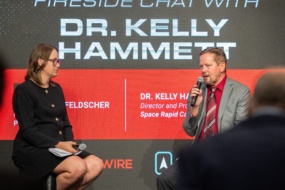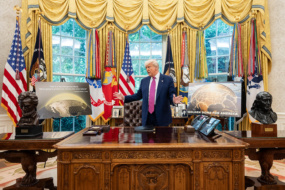The space community gathered at Payload’s first Space Capitol Forum on Tuesday to talk about ways for policy to adapt and better support the rapid advancements in space tech.
Setting the scene: The space industry is facing an important moment at the intersection of commercial space technology and policy as private companies take on missions ranging from astronaut launches to imaging Earth to attempting to harness space resources.
As these industries have developed, DC has often lagged behind. While the commercial tech is charging ahead, the regulatory and policy questions remain open, leaving companies in the lurch, sometimes showing regulators novel tech for the first time.
The forum delved into this intersection and attempted to bridge the gap between policy and industry in a few key areas:
Orbital debris: Krystal Azelton, director of program planning at the Secure World Foundation, didn’t mince words in urging the US to start acting with urgency when it comes to prioritizing space sustainability.
Janice Starzyk, the deputy director of the Office of Space Commerce, responded that the agency’s power is limited to the authorities Congress gives it. She also pointed to slow funding—for example, the office has taken flak for delays in its space traffic management system, which was ordered in 2018…but didn’t receive funding until 2023.
The one thing all panelists could agree on: it’s time for Congress to act on the matter, whether it’s the ORBITS Act or another piece of legislation.
CLPS: Officials from Astrobotic and Firefly talked about how they’re pursuing a future lunar economy, even as legal and policy questions about ownership, infrastructure, and regulation on the Moon’s surface are still being debated domestically and internationally.
Long-term lunar missions will need power, life support, heat, and other infrastructure—a huge capital expenditure for the private market. Caryn Schenewerk, president of CS Consulting, said some in industry are discussing the idea of a lunar power purchasing agreement—essentially “if you build it, they will come.”
The commitment, modeled after those on Earth, would allow the government to promise to buy a certain amount of capability from the private sector, allowing companies to fundraise and invest with a clearer demand signal from the market




